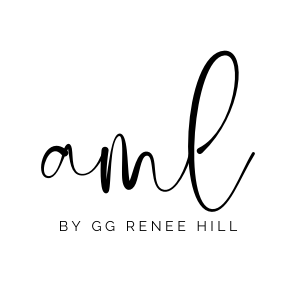lost and found
august 20 | weekly warm-up
Write about a time when you got lost—physically, psychologically, conceptually, whatever interpretation that comes to mind for you. Describe your internal and external environment and how the experience affected you. How did you get lost, and ultimately what did you find?
“Our minds are stuck in the literature of the ancients, perpetually dreading being lost and not found. We are terrified of being set upon by the gods and whirled into an unexpected adventure that we could never measure up to.” — Hal Niedzviecki
When I think about detours and pivots, I immediately think about getting lost. If our dreams are truly a reflection of messages released from our subconscious, then I must have a deep-seated fear of getting lost. Lately I’ve been reassuring myself before I go to sleep that I can wake myself up if the dream gets too intense. The last one I recall, I was in the grocery store at night, which is not an uncommon thing for me in real life. I walk out of the automatic doors of the Safeway with both hands full of bags, and suddenly the whole parking lot is empty, our truck is gone, poof, nowhere to be found. I freeze as a familiar dread comes over me. I realize that this is not the Safeway up the street from my house like I thought it was, and it’s not nighttime, it’s day. I look east, west, south, north to get my bearings, but I have no idea where I am as the landscape keeps changing every few seconds, minutes, I can’t be sure. Where are my grocery bags? Where’s my keys, my purse, my phone?! Lost yet again, I begin the descent into panic which usually involves desperately running around in circles trying to find my way to safety.
The circumstances of each dream are different, but they all involve some kind of misunderstanding, usually on my part; some error that results in me getting lost or left behind, losing something or someone important. Some of them have a mild effect on me, more annoying than anything else. While others are bona fide nightmares that I escape only after facing some kind of existential turmoil that exhausts every cell of my body as I pass through into the waking world sweaty, confused, relieved. Like I said, I suspect that I have a deep-seated fear of getting lost, physically and psychologically, and because I’m a writer; it got me thinking about how getting lost is one of those unexpected pivots in our lives (and in our writing) that we do our best to avoid.
Why is it so scary to get lost, especially when we know that it is an inevitable part of life? In this Literary Hub article, Hal Niedzviecki says, “Being lost, getting lost, is a foundational narrative—an ur-text for almost every imaginable culture and time.” He goes on to reference examples of folklore, biblical stories, and Greek literature where the characters have to get lost and go on an adventure in order to find their way home and become who they are meant to be. He says, “In the Western canon, lost is where it all begins. Children cannot reach adulthood until they get lost—in Grimms’ fairy tales, in upside-down lands like Wonderland, Narnia, Oz—lands stumbled into as accidentally-on-purpose as an anonymous wall leading to track nine and three-quarters… Is it that we’re all children waiting to get lost, to be defined by singular adventure? … Ah adventure. Is that what being lost is? Adventure means experiencing dramatic uncertainty, something that requires you to marshal your resources and make it out alive with a story to tell.”
Lately, I’ve been wanting to stop being afraid of getting lost in my dreams. I’m curious about what would happen if I didn’t panic; if I just sat still and observed, no chasing, no running. What if making different choices leads me to different outcomes? Maybe this courage to be still and wait for direction will carry over into real life. I think it’s at least worth a try. This week, our reflection exercise is to explore your own lost and found narratives.

